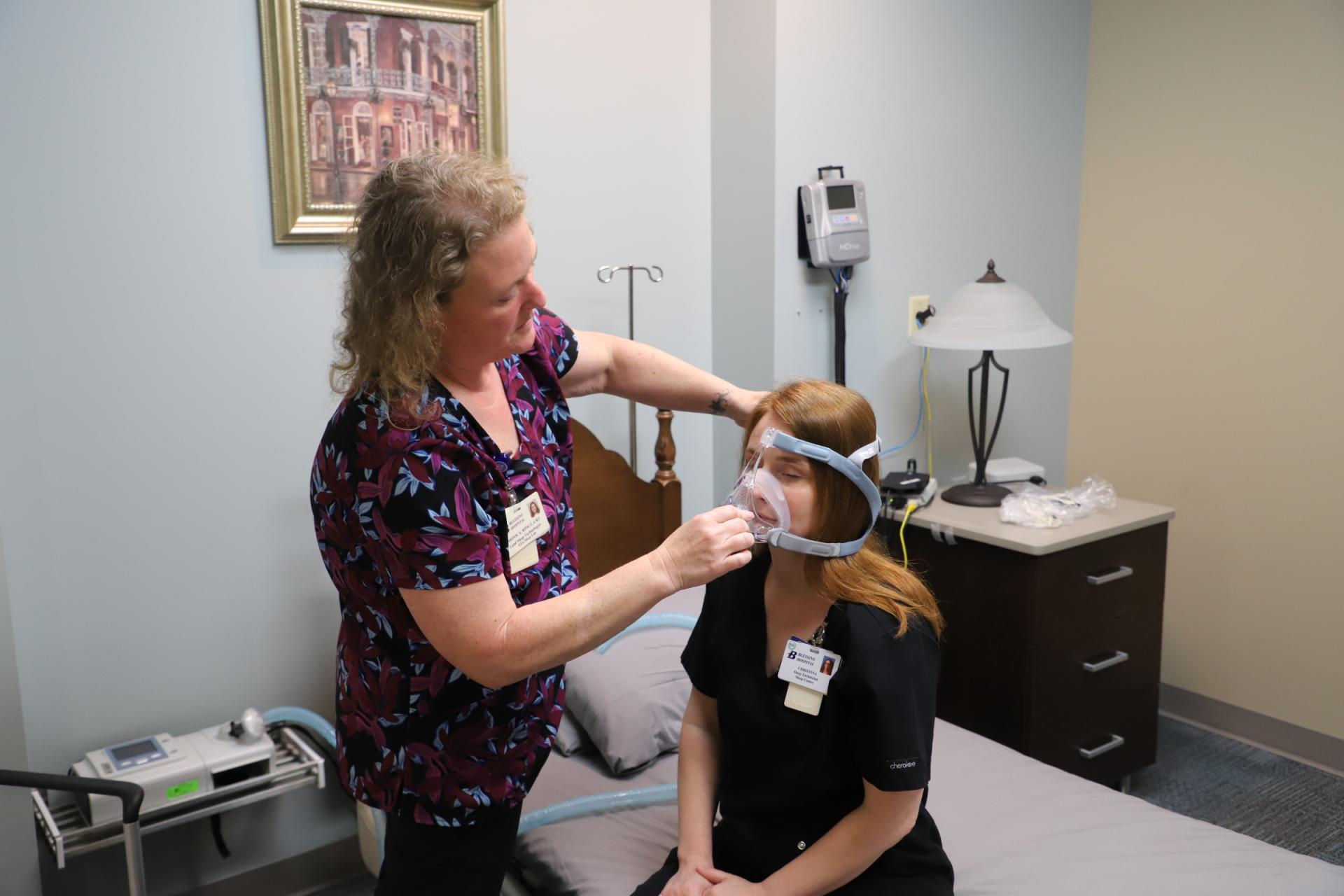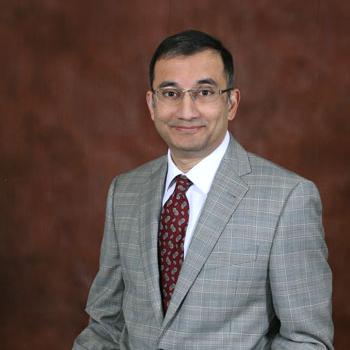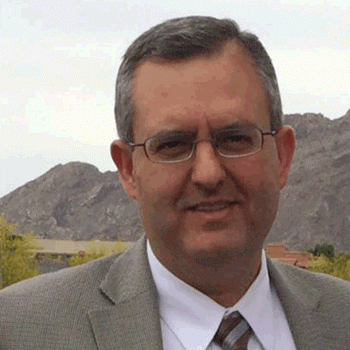Experience the Blessing Difference: Our Sleep Center
Patients choose the Blessing Sleep Center because of our:
Long track record of success: Blessing has been performing sleep studies since 1985. We are an accredited Sleep Center from the American Academy of Sleep Medicine. Our trained and experienced sleep specialists are experts at diagnosing sleep disorders, so we can get you the personalized care you need.
Quick access to care: Our facility’s size allows us to perform more nighttime studies than others in the area, so our patients experience shorter wait times when scheduling a sleep study. We also offer an on-site sleep specialist for prompt follow-up care, which means less time awaiting test results.
Sophisticated technology and comfortable rooms: We use advanced equipment with video capabilities for acquiring and scoring sleep studies, providing you with a precise diagnosis. Our private sleep study rooms feature 3 full-size beds with Sleep Number® mattresses and one hospital bed with a Tempur-Pedic® mattress. Each private room has its own bathroom with a shower. For further comfort, each private room has an individual thermostat for climate control.
Variety of treatment options: Based on your diagnosis and symptoms, our specialists at the Blessing Sleep Center will recommend one or more treatment options that best works for you. Learn more about our newest Inspire treatment option here.
In-depth education: We emphasize patient education and provide you with comprehensive follow-up support as a key part of our treatment recommendations.
Broad scope of care: Our board-certified sleep specialists boast additional training in pulmonary or neurology and can offer you expert diagnosis and treatment for a range of conditions. We also work with ear, nose and throat (ENT) physicians and psychiatrists, as appropriate, ensuring you receive comprehensive care. Learn more about our Pulmonology and Ear, Nose and Throat programs.
Forms
Sleep Disorders We Diagnose
Untreated sleep disorders can increase your risk for certain health conditions, such as high blood pressure and diabetes. Based on your diagnosis and symptoms, our specialists will recommend one or more treatments. The Blessing Sleep Center can help diagnose:
Sleep apnea: A person with apnea stops breathing for short periods throughout the night. This leads to poor-quality rest. Learn more about sleep apnea.
Narcolepsy: This neurological disorder causes sudden shifts from wakefulness into sleep.
Restless legs syndrome: Constant leg motion can lead to fragmented and poor-quality rest and daytime fatigue.
Insomnia: While difficulty falling asleep is one type of insomnia, frequent nighttime awakenings and poor-quality rest are other characteristics of the condition.
Hypersomnia: This condition can include feeling extra sleepy during the day, long sleep periods and excessive amounts of deep sleep.
Hypoventilation: In this condition, the lungs do not draw in sufficient air. It can lead to fragmented rest due to decreased oxygen levels.
Diagnostic Tests for Sleep Disorders
The purpose of diagnostic testing is to objectively measure the quantity and quality of your sleep. Doctors also monitor related measures, such as breathing and brain wave patterns. After identifying certain patterns from these tests, doctors can make a more accurate diagnosis and plan your treatment.
In the interest of social distancing, Blessing Sleep Center is offering minimal contact for at-home testing unit pick up. Here are instructions on how to put on your home sleep apnea testing unit.
The Sleep Center provides diagnostic tests that include:
Polysomnogram (sleep study): For this test, you will sleep overnight in our Sleep Center. We will attach special devices to your skin so our specialists can monitor your sleep and breathing patterns while you sleep.
CPAP titration study: This is an overnight study using a continuous positive airway pressure (CPAP) machine. This breathing device, with a mask placed on your nose or mouth and nose, uses mild pressure to help open your airways so you can breathe easier while sleeping. This overnight study helps determine CPAP pressure and equipment type for patients diagnosed with sleep apnea.
Split night: For this test, patients undergo a traditional sleep study for the first half of the night, followed by CPAP titration the second half of the night. This can provide doctors with more detailed information to better manage patients’ severe sleep apnea.
Multiple sleep latency testing: This all-day nap study assesses excessive sleepiness and/or narcolepsy.
Multiple wakefulness testing: This study is used to assess how alert you are through daytime challenge tests.
Overnight pulse oximetry: For this test, you take home an oximeter, which has a sensor that attaches to your finger and measures oxygen levels in your blood. The device will track your results, and we will review them at your follow-up appointment.
Home sleep apnea testing: You take home sleep apnea testing equipment with detailed instructions. This type of testing can provide doctors important diagnostic information when a patient is unable to complete a sleep study at our center.
PAP NAP: This daytime test performed at our sleep facility lasts 2 to 4 hours. This test is designed to help patients adjust if they have difficulty tolerating CPAP. During the PAP NAP, our expert staff will help patients with mask desensitization for those with claustrophobia.
Contact Us
To schedule an appointment or refer a patient, call (217) 277-5390.
Common Questions
Sleep study rooms are set up like a hotel and usually are in a quiet area of the hospital. You have a private room. Upon request you can have a fan or sound machine. The technologist will monitor you from a nearby control room.
Yes. You may bring items you use for your bedtime routine, including pajamas, a robe, slippers and reading material that may help you fall asleep. You also should bring any medications you may need.
In most cases, you will arrive to the sleep center in the evening and your test will take place overnight.
A full night's sleep isn't required to obtain accurate polysomnography results, but you will remain in the lab until around 5:30-6 a.m. the next day.
Don't worry if you can't fall asleep as easily or sleep as well during your sleep study as you do at home, as this usually doesn't affect the test results.
While you sleep, a technologist monitors your:
- Brain waves
- Eye movements
- Heart rate
- Breathing pattern
- Blood oxygen level
- Body position
- Limb movement
- Snoring and other noises you may make as you sleep
These measurements are recorded on a continuous graph. The results help your sleep physician determine if treatment may improve the quality of your sleep.
No. Sometimes, in rubbing the skin or putting on the finger device, there are mild and temporary skin irritations. You may also feel a sensation of warmth where the oxygen - measuring device contacts your skin. However, these do not generally cause any significant discomfort.
One fingernail should not have nail polish. Finger nail should not have an acrylic nail, so the pulse ox picks up the appropriate reading.
For most patients, it is covered at least in part by their respective policies. However, each patient should check with his or her policy or insurance company. Many companies require pre-approval for these tests. Additionally, Medicare and private healthcare insurance payers have deductible and co-payments for sleep medicine services that are the responsibility of the patient.
There are a number of ways a person can be evaluated. A person needs to start by seeing his or her primary care physician. The primary care doctor may refer a person directly to the sleep center for testing as long as an adequate health history is provided. The primary care physician may also choose to refer a person to the sleep specialist for evaluation, and from there a person may be sent to the sleep center for testing.
A physician specialist of the Sleep Disorders Lab interprets the information from the study.
Each patient has a private room and bathroom in the sleep center.
If you can’t sleep, we may need to schedule another study.
That is normal. The sleep tech will disconnect you from a few wires and you are free to use the bathroom.
Your sleep doctor will work with you on treatment options.
- The CPAP machine is the most recommended treatment. However, other treatments exist. These include:
- Healthy weight loss (if appropriate)
- Side sleep position
- Dental device
- Nerve stimulator called Inspire
We have no snacks at the sleep center, so if you might need a snack please bring one. We have a patient refrigerator for snacks.
Please contact the Sleep Center 217-277-5390 and let us know. If you are more than 30 minutes late your appointment will need to be rescheduled.
Please contact the Sleep center at 217-277-5390. As a courtesy, we will attempt to confirm your appointment either by text message or a call.
Unfortunately, no the sleep physicians want to see as much sleep as possible during the study and the physicians are concerned that a bed partner would cause disruptions in sleep. If the sleeping accommodating need to be made please contact the Sleep Center before you sleep study.
The Quincy Hospitality House provides affordable temporary lodging for patients receiving health care in Quincy and their loved ones. https://www.blessinghealth.org/locations/teresa-adams-house
No, your sleep study has to be reviewed by the Sleep Physician before a machine can be ordered.
Unfortunately, this depends on if the ordering doctor is placing the order for the CPAP machine or if the Sleep Physician is ordering the machine. Please beware insurance will need to authorize the order for equipment after the physician places it.
No, the Sleep Center does not have medication. If you feel you would benefit from medication, please bring your own.
Yes. If another patient cancels their appointment, we will contact patients on the waiting list on a first come, first call basis.
You get a machine by getting a doctor order for a sleep study. Then, having a sleep study done that shows sleep apnea. Next, you have follow-up with a doctor who goes over the sleep study and then orders a machine. The order is sent to a home care medical store. The home care medical then contacts you to get your machine after it is authorized through insurance.



